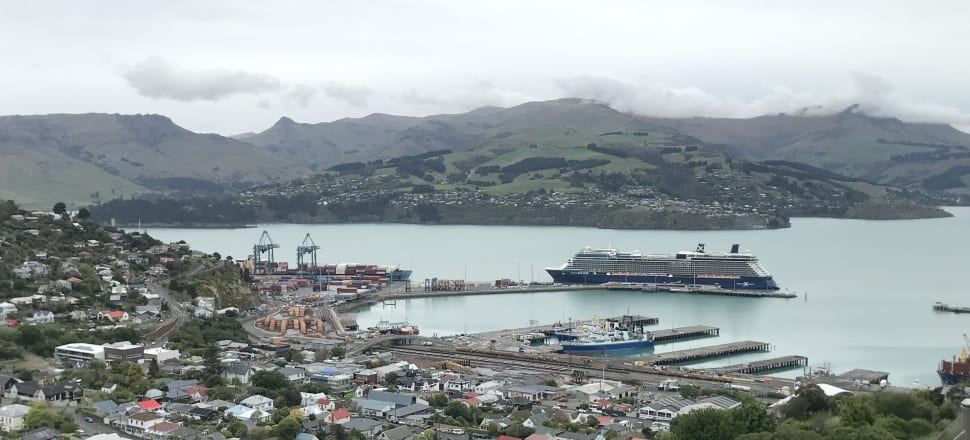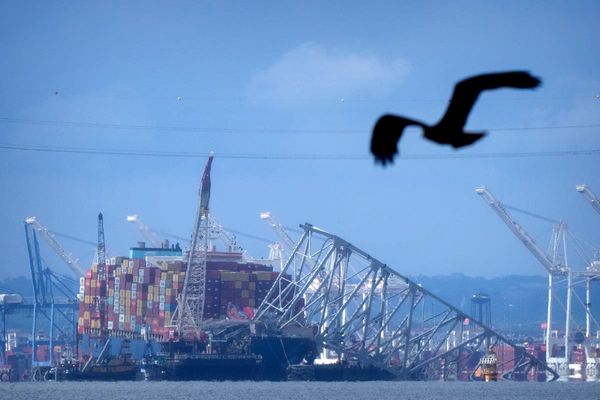
Transparency questions raised over consultants’ work on Lyttelton Port Company
An Auckland consultancy was paid $42,000 for a verbal briefing that led to the resignation of two Lyttelton Port Company board members, including the chair.
Christchurch City Holdings Ltd, the city council’s investment arm, has revealed it paid the consultancy Propero $36,500 plus GST for a review of the governance performance and practices at the port company.
It released the figure after Newsroom complained to the Office of the Ombudsman. We originally asked for it in June but CCHL refused to release it, citing commercial sensitivity.
READ MORE: * Christchurch mayor backtracks on asset sales * Port company keeps cost of party secret
Propero signed terms of engagement with CCHL on March 24 and provided the verbal briefing to the company’s board on April 20. Minutes of the briefing haven’t been released publicly.
CCHL chair Abby Foote, who was appointed on March 1 and signed the terms of engagement, said Propero gave the meeting “clear conclusions and recommendations”.
“This was consistent with the agreed scope and process.”
In an April 27 statement, CCHL announced it had accepted the resignations of the port company’s chair, Margaret Devlin, and director, Don Elder.
The statement said: “The [Propero] review concluded that, while individual directors were working in the best interests of LPC, a current lack of alignment within the Board was preventing it from operating effectively.”
Propero managing partner Matt Stanley didn’t respond to Newsroom’s request for comment.

Newsroom asked Christchurch Mayor Phil Mauger, and all city councillors, if the people of Christchurch got value for money and sufficient transparency when tens of thousands of dollars were spent with a consultancy without a printed report being produced?
Also, we asked, did they believe there was a case for more transparency given four port company board directors, including Devlin, had quit this year, as had chief executive Kirstie Gardener? (Foote joined the board temporarily, between April and June.)
The city council said Mauger “has no comment”, and sent us back to CCHL.
Banks Peninsula ward councillor Tyrone Fields says the council and CCHL should be as transparent as possible.
“Cloak and dagger corporatism isn’t really something I support. However, I thought Kirstie was a good CE and a good person and is entitled to her privacy given her resignation is an employment matter.”
Foote, the CCHL chair, says new director appointments “reflect good governance practices, providing increased diversity on the LPC board, and aligned to an updated skills matrix which identified the skills and experienced needed on the LPC board”.
“The changes have enabled the LPC board to reset and make significant functional gains.”
Former Christchurch Mayor Garry Moore was a CCHL board member for 12 years.
“I have never, ever heard of it before,” he says, when told Propero was paid $42,000 and didn’t produce a printed report.
“I am extremely concerned about the level of secrecy at CCHL and city council.”
Canterbury Chamber of Commerce chief executive Leeann Watson says: “The Lyttelton Port plays a huge role in our regional economy – and it is important that businesses have a high level of confidence that the port will deliver a high level of service, that is supported by strong governance.”
In March, Foote wrote to Devlin saying Propero’s report should be shared with her, as chair, and CCHL.
“It is important for us to understand the issues and consequently any risk that we might need to more actively manage given our role in the appointment of directors and our ownership of the company.”
CCHL analyst Holly Darling clarified to Newsroom it initially anticipated a report would be produced.
“As Propero conducted the interviews with directors it became clear that a report would not contribute to solving the issues, therefore we changed our request to Propero requesting a verbal update instead. Following that verbal update, action was then taken.”

Ructions at Lyttelton Port Company sit within the context of a broader review of city council assets by CCHL, prompted by another consultant report, this time by Northington Partners, which landed soon after last year’s local body elections.
Mauger and nine councillors voted detailed business cases be pursued for council assets, to ensure owning them aligned with the council’s strategic goals.
The Northington report said CCHL was “under-utilised” and “significant value” could be added by more active asset management. The company portfolio should be rebalanced and reduced, the consultancy recommended.
This accords with a push, over many years, by the Canterbury Chamber of Commerce for “asset recycling”.
Other recommendations from the Northington report included appointing just two councillors to CCHL’s eight-person board, instead of four.
The board should be strengthened, the report said, “with directors who have the experience and skill sets to support the strategy evaluation and implementation”.
City councillors Sam MacDonald and Sara Templeton were appointed to CCHL’s board in February, and Foote was added on March 1. Since then, there have been five more new directors.
Foote, of CCHL, says: “The strategic review process is about ensuring that CCHL provides options to council that would generate better returns for the city while also ensuring CCHL can continue to invest in the critical infrastructure that will serve the needs of the Christchurch community, now and in the future.”
Moore, the former mayor, says: “As a city, we hold our assets as pretty precious, and to appoint directors that don’t understand the kaupapa [values] of Christchurch is disgusting.”
‘In shit creek’
As the year has progressed, the drums towards a potential sell-down of assets appear to have beaten louder.
In August, Newsroom reported Mauger had backtracked on his campaign promise not to sell the city’s “family silver”.
This week, straight after the general election, the mayor raised the prospect of cuts to libraries and swimming pools, telling The Press newspaper the city was “in shit creek, financially”.
As it stands, he said, property owners face a rates rise of 18 percent, noting the council’s $2 billion debt, on top of $2 billion owed by CCHL.
In fact, that’s not unlike last year’s situation, when the council’s starting point was a 14.6 percent increase. Savings were found and the increase was whittled down to 6.41 percent.
The elephant in the room is the city’s under-construction stadium, Te Kaha, which added $94 to the average ratepayer’s bill last year. In the 2027-28 financial year that figure will rise to $209.
(Widen the lens to a national level, and Local Government New Zealand will be keen to hear more from political parties who made pre-election promises about better funding for councils.)
Mauger’s comments this week – made before a confidential briefing for councillors – were seen by at least one councillor, Jake McLellan, as fear-mongering. Another, Melanie Coker, thought the public was being softened up for asset sales.
Staff have already made cuts to that 18 percent figure, McLellan said, which raises questions about whether Mauger’s comments earlier this week were disingenuous.
The public will be consulted on proposed cuts, and full or partial assets sales, as part of its long-term plan.
Moore, the former mayor, says the city council-owned companies are natural monopolies.
“There’s been sell-downs before and the sell-downs have caused us all sorts of grief.”
Before CCHL’s takeover and de-listing from the NZX in 2014, the council didn’t have a say on major decisions, Moore says.
Now: “We own them and they act in the interests of our local economy.”







